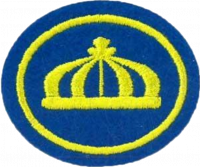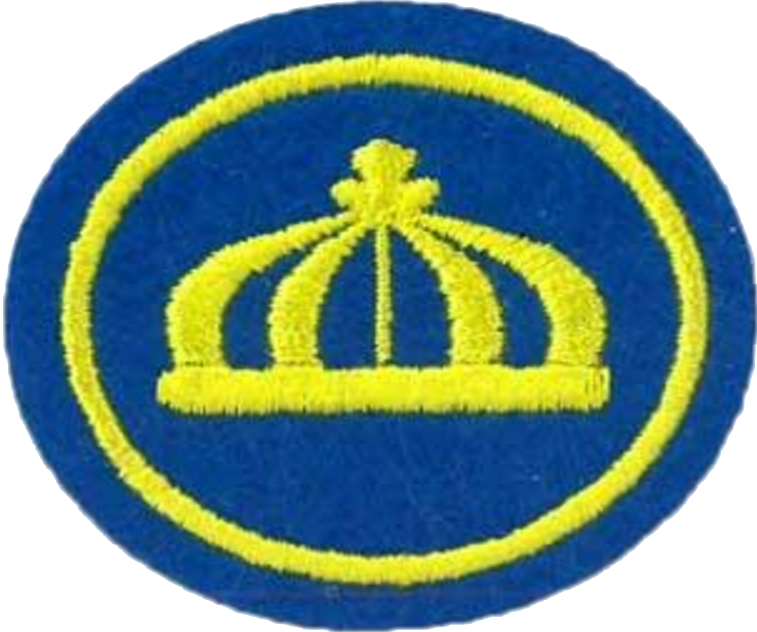Respuestas para la especialidad JA de Reyes de Israel
Nivel de destreza
1
Año
2017
Version
22.02.2026
Autoridad de aprobación
División Norteamericana
1
»Cuando hayas entrado en la tierra que Jehová, tu Dios, te da, tomes posesión de ella, la habites y digas: “Voy a poner un rey sobre mí, como todas las naciones que están en mis alrededores”, ciertamente pondrás como rey sobre ti al que Jehová, tu Dios, escoja. A uno de tus hermanos pondrás sobre ti como rey; no podrás poner sobre ti a un hombre extranjero que no sea tu hermano. Pero él no deberá tener muchos caballos, ni hará volver al pueblo a Egipto con el fin de adquirir caballos, pues Jehová os ha dicho: “No volváis nunca por este camino.” Tampoco deberá tener muchas mujeres, para que su corazón no se desvíe; ni amontonará para sí demasiada plata ni oro. »Cuando se siente sobre el trono de su reino, entonces escribirá para sí en un libro una copia de esta Ley, del original que está al cuidado de los sacerdotes levitas. Lo tendrá consigo y lo leerá todos los días de su vida, para que aprenda a temer a Jehová, su Dios, guardando todas las palabras de esta Ley y estos estatutos, y poniéndolos por obra. Así no se elevará su corazón sobre sus hermanos, ni se apartará de estos mandamientos a la derecha ni a la izquierda, a fin de que él y sus hijos prolonguen los días de su reino en medio de Israel.
2
Puede leer los capítulos 8 al 10 de 1 Samuel en BibleGateway.
Saúl se convirtió en el primer rey de Israel debido a que el pueblo de Dios quería ser como las naciones circundantes que ya tenían reyes. Samuel era viejo y sus hijos corruptos. Los ancianos creyeron que Samuel pronto pasaría y no vieron ningún líder que los guiara. Como resultado, buscaron a un hombre, como lo habían hecho otras naciones, en lugar de buscar a Dios.
Dios en su infinita sabiduría sabía que esto iba a suceder. Lo predijo justo antes de que los hijos de Israel cruzaran el Jordán hacia la Tierra Prometida. Como tal, el Señor dio pautas sobre el asunto, declarando que esta persona debe ser de entre sus hermanos y no alguien del exterior.
3
El papel divino del rey era guiar al pueblo de Dios en el camino divino hacia la rectitud, manteniendo las leyes y los estatutos del Señor.
4
- El primer y continuo Rey de Israel y todo el mundo fue Dios mismo. Dios quiere ser el máximo líder de su pueblo y quiere que sus hijos disfruten en su reino eterno.
- El rey Saúl fue el primer rey ungido de Israel.
- El rey David, el yerno de Saúl, hijo de Isaí.
- El rey Salomón, hijo de David y Betsabé.
5
Él muda los tiempos y las edades,
- quita reyes y pone reyes;
- da la sabiduría a los sabios
- y la ciencia a los entendidos.
We might not always agree with our own political leaders, but it is important for us to understand that God's will placed them where they are today. This is true even when the leader is an ungodly person, as in the following passage:
Jesus answered, “You could have no power at all against Me unless it had been given you from above. Therefore the one who delivered Me to you has the greater sin.”
We might not understand why God allows evil people to rise to power, but we must remember:
And we know that all things work together for good to those who love God, to those who are the called according to His purpose.
God establishes rulers that He might also establish order. It is therefore important for us to obey our leaders to the extent that their commands do not conflict with God's:
But Peter and the other apostles answered and said: “We ought to obey God rather than men.
And Jesus answered and said to them, “Render to Caesar the things that are Caesar’s, and to God the things that are God’s.”
6
This can be found in 1 Samuel 15. Basically, God commanded Saul (through Samuel the prophet) to attack Amalek (which was ruled by Agag), and "utterly destroy all that they have, and do not spare them." But Saul kept the livestock and took Agag prisoner. When confronted by Samuel about this, he claimed that they had done so in order that they might sacrifice them to the Lord. But even though this is not what the Lord had commanded, Saul insisted that he had obeyed God. Samuel pronounced God's sentence, saying "Because you have rejected the word of the Lord, He also has rejected you from being king."
The reason Saul was rejected as king was not that he did not obey God, but rather, that he did not repent of his wrongdoing.
7
8
Unlike Saul who did not repent when confronted with his sin, David did repent. He did not try to excuse his behavior or blame someone else for what he did. He accepted blame and was truly sorry for what he had done. David's response should be an example to us today. We all have sinned and fall short of the glory of God, and if we try to excuse our sins, we are following Saul's pattern. If we admit that we have been sinful and ask God for forgiveness as David did, then we too will be "after God's own heart" and God will forgive us.
If we confess our sins, He is faithful and just to forgive us our sins and to cleanse us from all unrighteousness.
9
The passage can be found on Bible Gateway. In the cited passage, human wisdom was unable to determine who the mother was. But since Solomon has been given wisdom by the Lord, he was able to devise a simple test that made it obvious who the mother was. Everyone was able to see exactly what the truth was.
10
You can read this passage at BibleGateway.
11
12
13
13a
King Azariah (Uzziah) walked in the ways of the Lord. God rewarded him, causing him to prosper. God also helped him to claim victory in many wars with over 300,000 men at his side.
13b
King David surrendered his heart to the Lord. Of the many good things he did, he gave to his son Solomon the blueprints for the house of the Lord, the temple that was to be built to glorify the Lord.
13c
King Hezekiah walked in the ways of the Lord. He repaired the temple, leading God’s people back to Him. He requested God to forgive them and made a covenant with the Lord.
13d
King Jehoshaphat also walked in the ways of the Lord. He followed God to the point where he sent singers to sing praises unto the Lord, even though three vast armies were coming to make war and try to defeat him. The Lord blessed him by causing no man to fight and defeating the armies Himself.
13e
King Josiah was the last good king before destruction. After he became king at age eight, he followed the Lord. In the process, he removed idols, reestablished the practices of Passover, and obeyed the laws of the Lord.
13f
14
15


